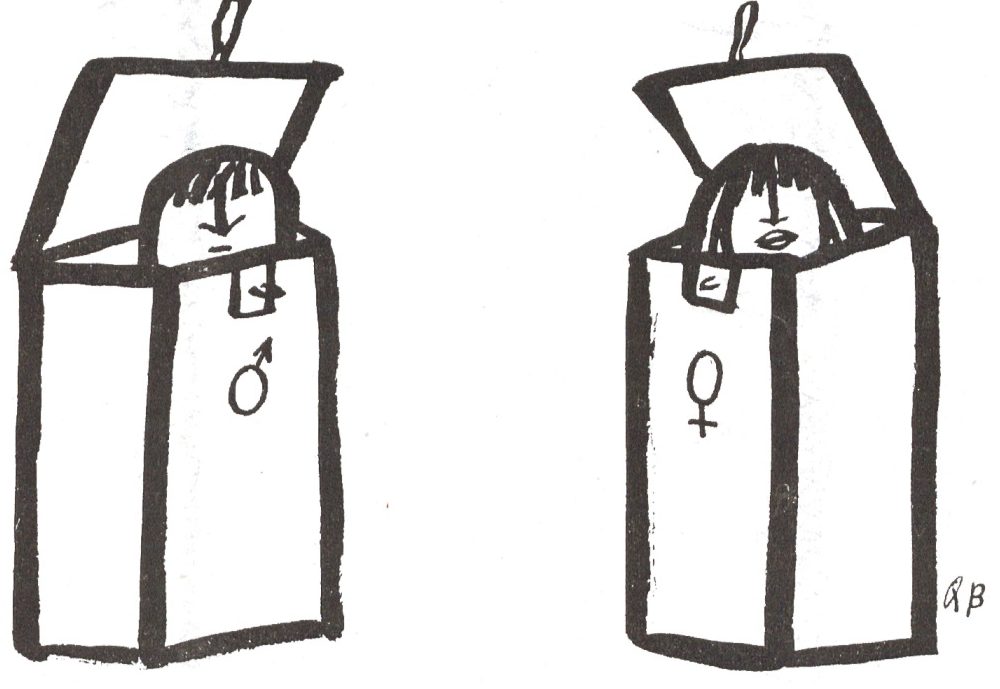When it comes to the transgender issue, Sweden sobered up earlier than many other countries.
Pediatricians have pleaded with politicians to take into account the suffering of young people, especially girls misdiagnosed as trans
In 2022, the Swedish National Board of Health and Welfare decided that children diagnosed with gender dysphoria must no longer be treated with puberty blockers (except in a few very rare cases). This came after SVT, Sweden’s equivalent of NPR, uncovered several dreadful scandals related to Sweden’s transgender care for children.
In one case, a biological girl was, at the age of fifteen, suffering from osteoporosis as a result of being given puberty blockers. It also turned out that the health care system had systematically threatened parents with social services if they opposed so-called “treatment” for their transgender children.
After the program aired, the Swedish National Board of Health decided to step in. Its new guidelines stated that there was not enough evidence to support hormone treatment for children, and that any treatments on underage children needed parental approval. By that time, however, over four hundred Swedish children had already been treated with puberty blockers.
That was as far as the sobering up went. Last week though the Swedish parliament, the Riksdag, voted for a new law which makes it easier to change your legal gender. The law applies to children as young as sixteen, as long as they have parental permission. Above all, adults will be able to change their legal gender more easily, unlike today, when the required medical and governmental approval can take years.
Prime Minister Ulf Kristersson of the Moderate Party has referred to the law as an important “modernization” and a victory for transgender rights.
But there has been widespread popular opposition.
Opinion polls suggest that a large majority of Swedes are against the new law. Feminists, including the women’s branch of the Social Democrats, have come out against it. Pediatricians have pleaded with politicians to take into account the suffering of young people, especially girls misdiagnosed as trans.
Critics have also argued that it might not be a great idea in a country so plagued by organized crime, to allow criminals to cheat the authorities by changing their gender back and forth at will. (The most recent gangland bombing took place on Thursday, if I’m not mistaken — but since these things tend to happen a few times a week, it’s hard to keep track.)
Still, the bill passed in parliament with only two parties voting against it: the Christian Democrats and the anti-immigration Sweden Democrats — Sweden’s two social conservative parties. Meanwhile, many members of parliament from other parties on the right seem to have voted in favor of the law against their own personal convictions.
This is not a minor affair in Swedish politics, and the issue goes far beyond gender.
When you talk to members of Kristersson’s Moderate Party in private, it is difficult to find a single person who is in favor of the new law.
But here’s the interesting thing. When you speak to individuals in the party leadership, they seem genuinely surprised to hear that there are reasonable people out there critical of the bill.
This suggests that the Moderate leadership has once again found itself in an ideological bunker. It was the same with its views on immigration. Up until a few months into the migration wave of 2015, the party was a staunch defender of open borders — a policy it paid for when the Sweden Democrats surpassed it as the biggest party on the Swedish right for the first time in the 2022 election.
And so once again, the Moderates have allowed the Sweden Democrats — the party rooted in the Swedish extreme right, but which has been significantly rehabilitated and reformed over the past three decades — to appear as the voice of reason against ideological extremism.
What does this mean for the Moderates? Mainly, that it is occupying a shrinking space in Swedish politics.
Liberals on the left cannot forgive the party for going into government while relying on support from the Sweden Democrats in the Riksdag.
And on the right, disgruntled voters who may have forgiven the Moderates for their years of being extremely pro-immigration will not look kindly on them siding with the left again on a fraught culture war issue.
On Wednesday, while the debate on the new gender law was going on in the Riksdag, I bumped into a senior member of the Sweden Democrats in Stockholm city-center. We agreed that what was happening in parliament was horrendous. And then he rushed off, looking very much like a winner.
This article was originally published on The Spectator’s UK website.


























Leave a Reply